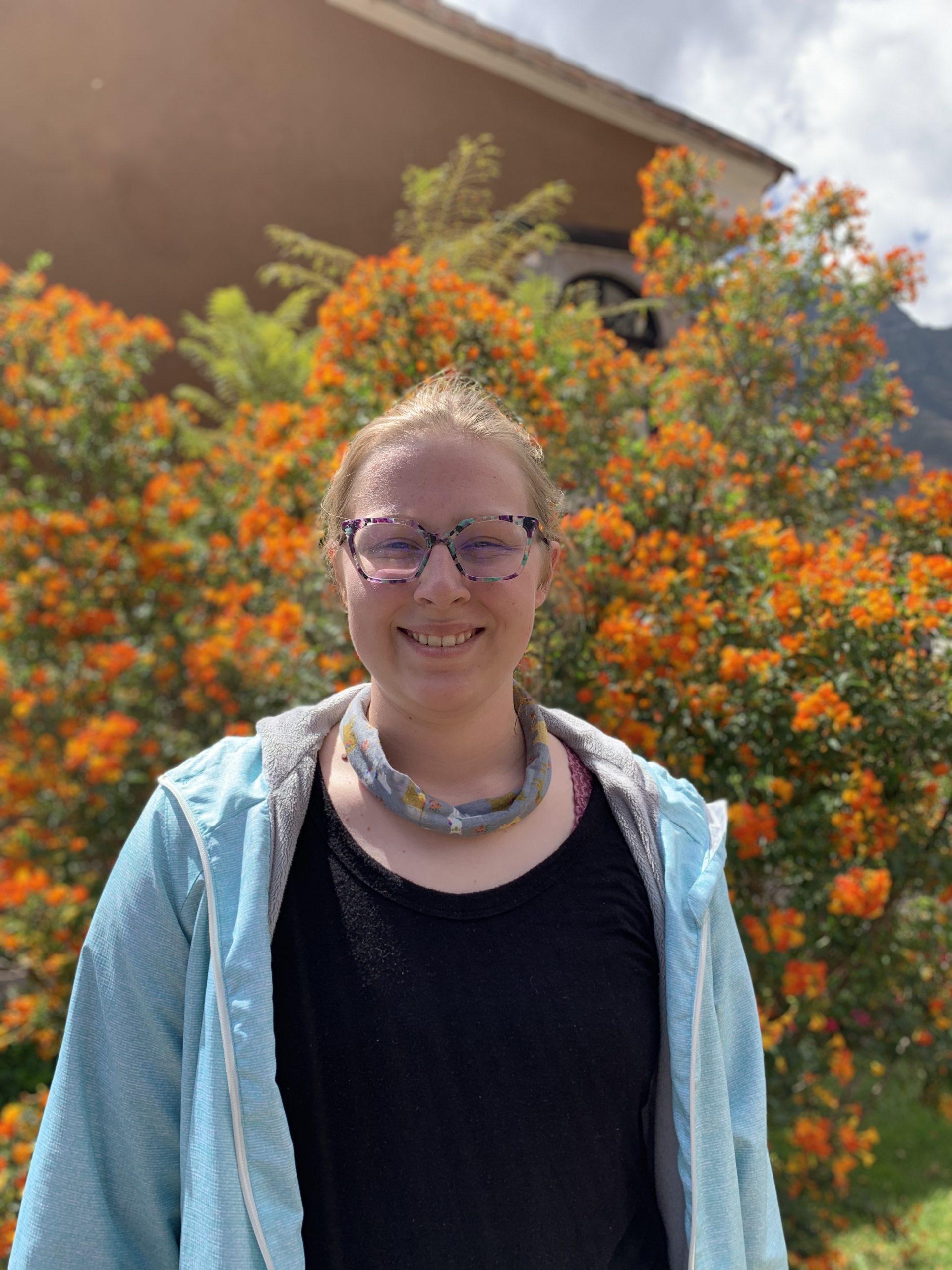Emma Croxford ‘22 didn’t intend to have four majors – mathematics, data science, history, and Spanish – and three minors – computer science, statistics and Latin-American studies – but that’s where her passions, and UIndy’s curriculum, led her.
“I was originally just going to do history,” explained Emma. “When I was in high school, I decided that history was for me. But honestly, the job prospects for history majors and the field are not quite what I wanted to do after graduation. So I’ve kept it as a passion, but decided not to pursue just that. I realized that I really love calculus.”
Emma’s love for calculus set her on course for achieving a degree in mathematics. During her sophomore year, Emma was taking both a computer science course and a statistics course and really enjoying them. When she heard about the newly created data science major, she thought, “Most of the math background that you have to have for data science is what I already had for mathematics. I’ll just go ahead and do the whole major.”
Thus, Emma was one of the first students in UIndy’s data science program.
“If the major didn’t exist, I probably would have still done the minors, but it wouldn’t have been quite the same,” said Emma.
The data science program at UIndy allows students to incorporate their own interests into their studies and projects. For example, Emma also has a love for languages — which led to her Spanish major — and was able to explore language processing in a few of her data science projects.
“Data science is super project-based, which is another reason that I really like it,” said Emma. “A lot of the projects we do give you the freedom to use data science in a field that you think is interesting. I really like history, and I really like languages, so I’ve been able to do projects that are related to those things.”
In addition to bringing together all of her interests, Emma appreciates the data science major’s tight-knit community.
“You really get to know all the professors, which is really nice,” said Emma. “All of my professors have a great open-door policy. I’ve always been able to get help from whoever I need whenever I need to, which has been nice, because, particularly for me, I have a hard schedule to make specific office hours work. So they’ve always been willing to meet with me outside of those hours in order for me to get help. I’ve had a great connection with a lot of my fellow major students, and so we’ve been able to meet up and work through problems and discuss stuff outside of class, which has been really helpful.”
One faculty member that significantly impacted Emma’s UIndy experience was Dr. Jeffrey A. Oaks, professor of mathematical sciences. Emma and Dr. Oaks connected over their love of both history and mathematics. Dr. Oaks also served as Emma’s honors project advisor.
“I generally find that students majoring in history avoid mathematics, and those majoring in math steer clear of history as much as possible,” said Dr. Oaks. “Emma is a rare exception to the unspoken rule that we align ourselves with a single discipline, and her multidisciplinary approach will serve her well in her future work.”
Emma highly recommends that students consider a major or minor in data science: “I would recommend a minor at minimum for almost every major. Data science is applicable in every other field in some way. In my time in the writing lab, I’ve read a lot of papers for the fields of psychology and kinesiology, and a lot of those are very statistically-based. You don’t realize how much statistics really plays into those fields. So having a data science major or minor for those fields would be an impeccable addition to somebody’s résumé, especially if they are planning to go into a DPT [doctor of physical therapy] or an OT [occupational therapy] program.”
And you don’t have to be a mathematical genius to be successful in the data science program.
“You don’t have to be good at math, because computer science itself is a very look-it-up-as-you-go sort of process,” said Emma. “You don’t have to remember everything all the time. You just have to know how to find the answers, which can be a very valuable skill, especially in the workforce. And statistics is not as mathematical as people think. It’s very conceptual.”
Emma graduated from UIndy in May 2022. Her next step is to attend graduate school at the University of Wisconsin at Madison, where she will be pursuing a PhD in biomedical data science. She’ll be the first in her family to attend a university out of state. She’s excited but a little nervous.
“I am actually a little concerned, because I’ve had such a great time at UIndy that it’s not going to compare when I move to such a big university,” said Emma. “I’ve really loved the small, close-knit community at UIndy, and I feel like that was instrumental in me succeeding.”
Change can be scary, but with a determination to succeed and a passion for education like Emma’s, anything is possible. One day, Emma will return to UIndy as Dr. Emma Croxford, PhD and tell the story of how she tackled four majors.

